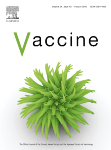After temporarily removing a paper that suggested a link between the vaccine for the human papillomavirus (HPV) and behavioral issues, the journal has now retracted it.
Vaccine says the reason is “serious concerns regarding the scientific soundness of the article,” including flawed methodology and unjustified claims.
Christopher A. Shaw, a co-author on the paper and a researcher at the University of British Columbia, told us he has seen the notice, but doesn’t know the specific issues the journal had with the paper:
We still don’t know why [Editor in Chief] Dr Poland removed the article.
Here’s the retraction notice for “Behavioral abnormalities in young female mice following administration of aluminum adjuvants and the human papillomavirus (HPV) vaccine Gardasil:”
This article has been withdrawn at the request of the Editor-in-Chief due to serious concerns regarding the scientific soundness of the article. Review by the Editor-in-Chief and evaluation by outside experts, confirmed that the methodology is seriously flawed, and the claims that the article makes are unjustified. As an international peer-reviewed journal we believe it is our duty to withdraw the article from further circulation, and to notify the community of this issue.
The journal published a proof of the paper online in January, ahead of print publication. Its conclusion contradicted previous research, which the U.S. Centers for Disease Control and Prevention and the World Health Organization have used to conclude that the vaccine is safe. Shaw told us that the proof had gone through peer review.
We asked him what his research means for the HPV vaccine safety. He emphasized that they were working with an animal model, which does not mean the results necessarily are applicable to humans:
I would say that because of the things that have been reported in the literature, [the vaccine] needs more scrutiny.
He also noted that last author Yehuda Shoenfeld, at Tel Aviv University, is not anti-vaccine:
He will routinely start his talk with “vaccines are the greatest medical invention of all time [and] will save millions of lives.”
Earlier this month, one of the authors forwarded us emails showing they were surprised to learn that the paper had been “temporarily removed,” and had been told that it was undergoing further review.
For two of the authors, this is their third paper to be stamped with the “seriously flawed” label: Shaw and Lucija Tomljenovi, also of the University of British Columbia, have previously suggested that aluminum in vaccines is linked to autism, in two studies a World Health Organization advisory body called “seriously flawed.”
Hat tip: Robert Pless
Like Retraction Watch? Consider making a tax-deductible contribution to support our growth. You can also follow us on Twitter, like us on Facebook, add us to your RSS reader, sign up on our homepage for an email every time there’s a new post, or subscribe to our new daily digest. Click here to review our Comments Policy.

We had a question from a supporter about the peer-review process for this paper and I was not sure how to answer: if the journal editors had found serious flaws with the paper after publication, why did the peer-review process not catch them? I can understand not catching faked data, out right lying, but should the flaws not have been caught at the beginning of the process? Thanks in advance for any who can clarify this!
“we believe it is our duty to withdraw the article from further circulation, and to notify the community of this issue.”
What issue? If it’s your “duty” to notify the community of an issue, I would hope you’d actually notify them of what the issue is. It might be that the methodology is as seriously flawed as the EiC says, but he certainly doesn’t say what that flaw is anywhere in the notice.